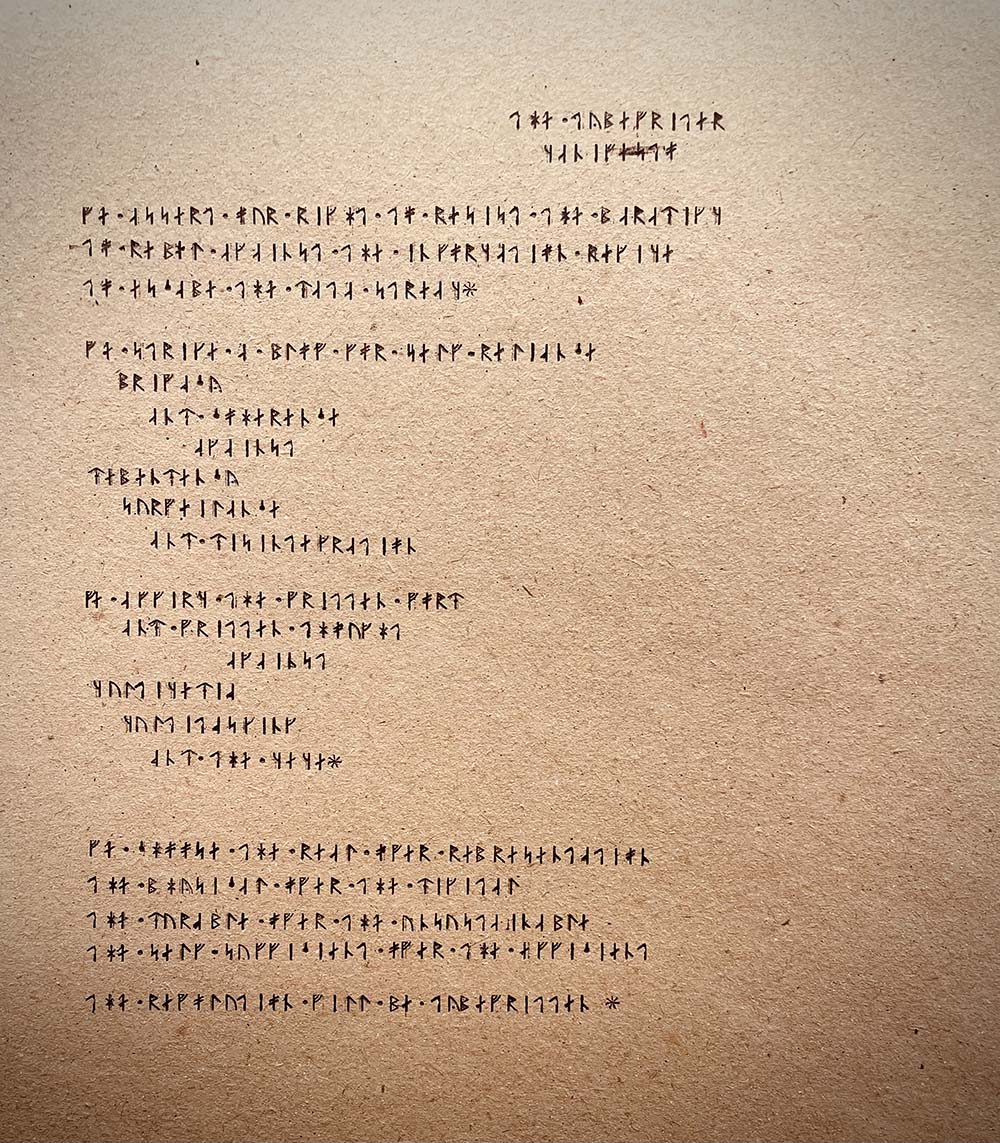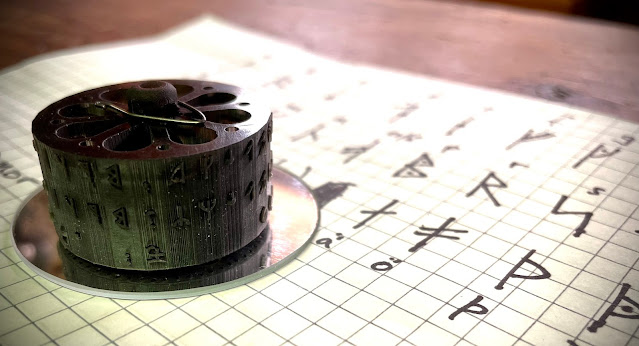Now I've seen it all.
Lukasz K. in Sweden contributes this version of the Typewriter Manifesto in runes.* Not just that, but runes typed on a typewriter!
*There are several different runic alphabets. This one, I believe, is the alphabet used on the Rök runestone, the origin of Swedish literature. For my post title, I used a different alphabet, the Younger Futhark.
Where do you get a typewriter that types runes??
You build one. More precisely, you print a runic typewheel for your Blickensderfer. Lukasz was inspired by Leonard Chau's 3D-printed typewheels to create his own, with tips from Leonard. I just love these international, collaborative innovations in typewriter technology!
You can read Lukasz's account of creating his own Blick typewheels here, and read about his runic typewheel here. He also has other fascinating posts about typewriters.
Now ... who will be the first to identify the language of the manifesto Lukasz typed? ;)




Wow! This is moving *fast* :D
ReplyDeleteAppears to be Norse Runic from what I can find looking it up. . . I half-hoped it would be Elfdalian, a Swedish Runic language used as recently as 100 years ago, but it doesn't fit. Will ask around. Very fun. Thanks for this! --WL
ReplyDeleteYour guess/half-hope is actually quite close (in terms of the types runes used, but not the language)!
DeleteThis set of runes are the closest ones to the Dalecarlian runes (you might say that this set of runes is the precursor to the Dalecarlian/Elfdalian runes). The set used here is actually an adapted runic alphabet used in the Codex Runicus (a very rare medieval example of runes being written on parchment instead of carved into stone or wood. Check it out, it is very cool!).
/Lukasz K's colleague
I'd bet there is already one with egypt hieroglyphics in the making somewhere ...
ReplyDeleteMaybe this is Tolkien's Cirth runic alphabet used for the Dwarves' Khuzdul language?
ReplyDeleteIt is not, but what a fun guess!
DeleteIt is a genuine medieval set of runes used around year 1300, so it is a successor to the younger Futhark.
/Lukasz K's colleague
No one has identified the language yet.
ReplyDeleteIs it Old Norse? I wish I had more time to get this right. . . --WL
ReplyDeleteEnglish!
ReplyDeleteNow there's a goal for my Hammond :-)
You are correct! :D
DeleteHa, ha!!
ReplyDelete3D printing at its best.
ReplyDeleteImpressive!
ReplyDelete